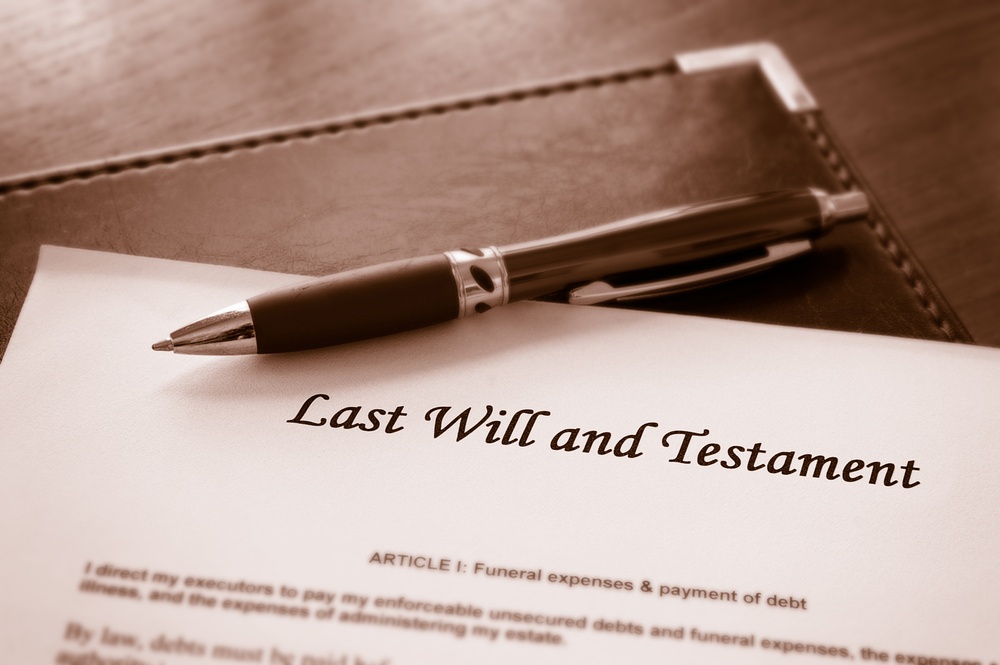General provisions on inheritance according to Vietnam Civil Code

Vietnam Civil Code has general provisions on inheritance. Let’s find out this issue with Lawyer X through the following situation: “Dear Lawyer! I want to ask what are rights of inheritance? What are equality of indivisuals with respect to rights of inheritance? When do rights and obligations of heirs arise? Thanks for answering me!”
Legal grounds
- 2015 Vietnam Civil Code
What are rights of inheritance?
A natural person may make a will to dispose of his or her estate, may leave his or her property to an heir in accordance with law, or may inherit an estate left to him or her under a will or in accordance with law.
An heir not being natural person has the right to inherit estate under a will.
Equality of individuals with respect to rights of inheritance
All natural persons are equal with respect to rights to bequeath their property to others and to inherit estates under wills or in accordance with law.
Time and place of commencing inheritance
– The time of commencement of an inheritance shall be the time when the deceased dies. Where a court declares that a person is dead, the time of commencement of the inheritance shall be the date provided in Clause 2 of Article 81 of Vietnam Civil Code.
– The place of commencement of the inheritance shall be the last place of residence of the owner of the estate. If the last place of residence is not able to be determined, the place of commencement of the inheritance shall be the place at which all or most of the estate is located.

What are estates?
An estate comprises property which the deceased owned and property which the deceased jointly owned with other persons.
Who are heirs?
If an heir is an individual, such person must be alive at the time of commencement of the inheritance or, if such person is born and alive after the commencement of inheritance, must have been conceived prior to the time when the deceased dies. Where an heir under a will is a body or organization, it must be in existence at the time of commencement of the inheritance.
Time when rights and obligations of heirs arise
From the time of commencement of an inheritance, the heirs have the property rights and obligations left by the deceased.
Performance of property obligations left by deceased
– A person entitled to an inheritance has the responsibility to perform the property obligations within the scope of the estate left by the deceased, unless otherwise agreed.
– Where an estate has not yet been divided, the property obligations left by the deceased shall be performed by the administrator of the estate as agreed by the heirs.
– Where an estate has already been divided, each heir shall perform those property obligations left by the deceased corresponding to, but not exceeding, that part of the estate that the heir has inherited, unless otherwise agreed.
– Where the heir inheriting an estate under a will is not a natural person, it must perform the property obligations left by the deceased in like manner as a natural person.
Administrators of estates
– Administrator of an estate means the person who is appointed in the will or by agreement of the heirs.
– Where a will fails to appoint, and the heirs have not yet appointed, an administrator, any person currently possessing, using or managing property within the estate at the time of the commencement of the inheritance shall continue its administration until the heirs have appointed an administrator.
– Where an heir has not yet been determined and there is not yet an administrator of the estate as prescribed in Clauses 1 and 2 of Article 616, the estate shall be administered by a competent authority.
– An administrator of an estate as provided in Clauses 1 and 3 of article 616 of Vietnam Civil Code has the following obligations:
+ Make a list of the property within the estate and collect any property belonging to the estate of the deceased which is possessed by others, unless otherwise provided by law;
+ Take care of the estate and do not sell, exchange, give, pledge, mortgage or otherwise dispose of property within the estate without the written consent of the heirs;
+ Notify the heirs of the estate;
+ Compensate for any damage if the administrator breaches any of its obligations, thereby causing damage;
+ Deliver back the estate at the request of the heirs.
– A person possessing, using or managing property within an estate as provided in Clause 2 of Article 638 of Vietnam Civil Code has the following obligations:
+ Take care of the estate and do not sell, exchange, give, pledge, mortgage or otherwise dispose of property within the estate;
+ Notify the heirs of the estate;
+ Compensate for any damage if the administrator breaches any of its obligations, thereby causing damage;
+ Deliver back the estate as agreed with the deceased in a contract or at the request of the heirs.
– An administrator of an estate as provided in clauses 1 and 3 of article 616 of Vietnam Civil Code has the following rights:
+ Represent the heirs in dealings with any third parties in relation to the estate of inheritance;
+ Receive remuneration as agreed with the heirs;
+ Receive payment of costs of estate preservation.
– A person possessing, using or managing property within an estate as provided in Clause 2 of Article 616 of Vietnam Civil Code has the following rights:
+ Continue to use the estate as agreed with the deceased in a contract or with the consent of the heirs;
+ Receive remuneration as agreed with the heirs;
+ Receive payment of costs of estate preservation.
– If the estate administrator fails to reach an agreement on the remuneration with the heirs, he/she shall be entitled to receive an appropriate remuneration.
Inheritance by persons entitled to inherit each other’s estate but dead at same time
Where persons who are entitled to inherit each other’s estate die at the same time or are deemed to have died at the same time because it is impossible to determine who of them died first (hereinafter referred to as simultaneous death), they do not have the right to inherit each other’s estate and the estate of each of the deceased shall be inherited by their respective heirs, except in the case of inheritance pursuant to Article 652 of Vietnam Civil Code.
Disclaimer of inheritance
– An heir may disclaim an inheritance, unless such disclaimer is for the purpose of avoiding the performance of its property obligations to other persons.
– A disclaimer of an inheritance must be made in writing. A person disclaiming must notify the other heirs and the person authorized to distribute the estate.
– The disclaimer of an estate must be expressed before the time of inherit distribution.
Persons not entitled to inherit
– The following persons are not entitled to inherit:
+ Persons convicted of having intentionally caused the death of or harmed the health of the deceased, of having seriously mistreated or tortured the deceased, or of having harmed the honor or dignity of the deceased;
+ Persons having seriously breached their duty to support the deceased;
+ Persons convicted of having intentionally caused the death of another heir in order to obtain all or part of the entitlement of such other heir to the estate;
+ Persons deceiving, coercing or obstructing the deceased with respect to the making of the will, or forging, altering or destroying the will in order to obtain all or part of the estate contrary to the wishes of the deceased.
– Persons provided in Clause 1 of Article 621 may, nevertheless, inherit the estate if the deceased was aware of such acts but, nevertheless, allowed them to inherit the estate under the will.
Estates which no one inherits
Where there is no heir under a will and at law, or where there is an heir but such heir is not entitled to inherit the estate or disclaims the inheritance of the estate, the residual estate for which there is no heir shall, after fulfillment of property obligations, belong to the State.
Prescriptive periods with respect to inheritance
– The prescriptive period with respect to a claim of an heir for distribution of an estate shall be thirty years regarding immovable property or ten years regarding movable property from the time of commencement of the inheritance. Upon the expiry date of the aforesaid period, the estate shall belong to the estate administrator. In case where there is no estate administrator, the estate shall be dealt with as follows:
+ It shall belong to the person possessing it as prescribed in Article 236 of Vietnam Civil Code;
+ It shall belong the State if there is no possessor prescribed in Point a of this Clause.
– The prescriptive period with respect to a claim of an heir for a declaration of right of inheritance of the requester or to disallow the claim to inheritance of another shall be ten years from the time of commencement of the inheritance.
– The prescriptive period with respect to a claim for an heir to fulfill property obligations of the deceased shall be three years from the time of commencement of the inheritance.
Please see more:
- Instructions for exclusive registration of company logos in Vietnam
- Service of changing the legal representative of Vietnamese enterprises
Services of Lawyer X
Prestigious professional services: Firstly, the team of consultants and consultants for many years in the field of civil status, and customer support.
On-time: Certainly, with the motto “Get your lawyer right at your fingertips”, we ensure the service always performs on time. The rights and interests of customers always come first.
Cost: Besides, Lawyer X’s service costs are highly competitive; depending on the nature of the particular case. So, we want our guests to have the best possible service experience. Therefore, costs which guaranteed to be the most suitable and economical for customers.
Confidentiality of client information: Finally, all personal information of clients Lawyer X will be 100% confidential.
If you need any further information, please contact LSX Law firm: at +84846175333 or Email: [email protected]
Frequently asked questions
An heir not being natural person has the right to inherit estate under a will.
All natural persons are equal with respect to rights to bequeath their property to others and to inherit estates under wills or in accordance with law.
The time of commencement of an inheritance shall be the time when the deceased dies. Where a court declares that a person is dead, the time of commencement of the inheritance shall be the date provided in Clause 2 of Article 81 of Vietnam Civil Code.
Conclusion: So the above is General provisions on inheritance according to Vietnam Civil Code. Hopefully with this article can help you in life, please always follow and read our good articles on the website: lsxlawfirm.com




